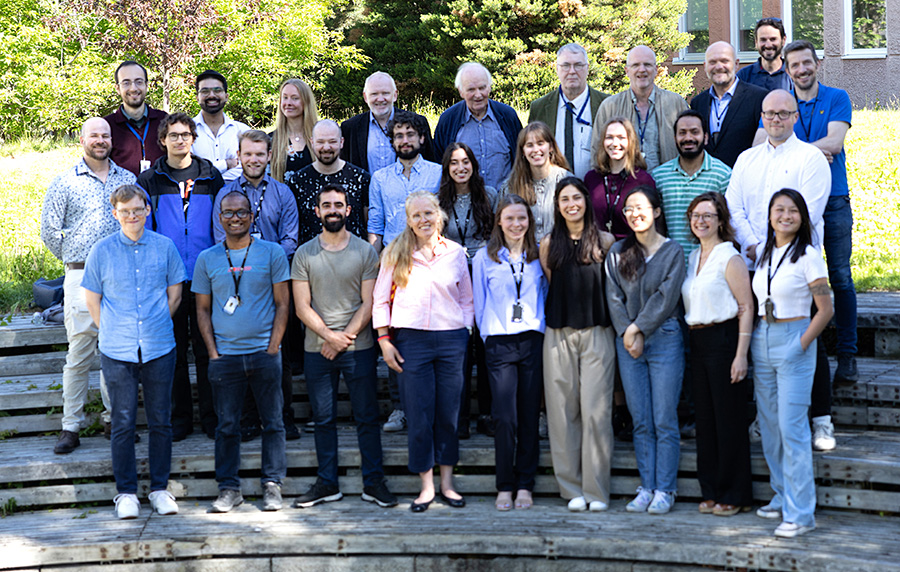Catalysis Group
Catalysis Group
The Catalysis Group at the Department of Chemical Engineering, NTNU organises research and teaching in catalysis, reaction kinetics, petrochemistry and related subjects. It is the largest catalysis group in Norway and the main arena for education of PhD and MSc candidates for Norwegian industry and research institutes. The group consists of five permanent faculty members, approximately 20 PhD students and 5-10 postdoctoral fellows. Every year between 10-15 MSc students graduate from the Catalysis Group.

Research Areas
The research areas of the Catalysis Group include Industrial Catalysis, Biofuels, Environmental Catalysis, Fundamental Studies in Heterogeneous Catalysis, Microstructured Reactors and Membrane Reactors, Production and Application of Carbon Nanomaterials, Carbon Nanofibers, Nanotubes and Graphene, Gas Cleaning, Photocatalysis, Refinery Operations, Natural Gas Conversion, Materials Development, etc.
Laboratories
We have dedicated laboratories for catalyst synthesis (carbon based materials, impregnation, batteries, capacitors etc.), materials characterization (chemisorption, TPX, BET, TGA, DSC, Raman, UV-vis, FT-IR, XAFS, XES, STM, etc.) and testing (attrition, Fischer-Tropsch, pyrolysis and biomass conversion, photocatalysis).
KinCat Gemini Centre
The Catalysis Group is part of the NTNU/SINTEF research laboratory where NTNU-staff collaborate and share facilities with researchers employed by SINTEF Industry. This collaboration is formalised through the KinCat Gemini centre. Personnel from the two organisations work together and participate in theoretical studies, teaching and research. The group participates extensively in international networks and has close collaboration with a number of universities and research groups inside and outside of europe. The research is funded by the Norwegian Research Council, European Research Council, Norwegian and international industry and other sources, and spans from fundamental studies of ideal surfaces to studies of industrial catalysts and process development work in small pilot plants.
Former Research Centres
From 2015 to 2023, the Catalysis Group headed a Centre for Research-based Innovation (SFI): industrial Catalysis Science and Innovation (iCSI) – for a competitive and sustainable process industry. The main objective of iCSI was to boost industrial innovation and competitiveness as well as to provide efficient, low-emission process technology. The centre director was Professor Hilde J. Venvik.
From 2007 to 2015, the Catalysis group was a partner in a Research-based Innovation (SFI): Innovative Natural Gas Processes and Products (inGAP) headed by the University of Oslo.
Academic Staff
-
Edd Anders Blekkan Professor
+47-73594157 +4791682708 edd.a.blekkan@ntnu.no Department of Chemical Engineering -
De Chen Professor
+47-73593149 +4748222428 de.chen@ntnu.no Department of Chemical Engineering -
Magnus Rønning Vice Dean for Research, Professor
+47-73594121 +4791897585 magnus.ronning@ntnu.no NV Faculty Administration -
Hilde Johnsen Venvik Professor
hilde.j.venvik@ntnu.no Department of Chemical Engineering
Adjunct Professors
-
Kjell Moljord
+47-73595183 +4773594030 kjell.moljord@ntnu.no Department of Chemical Engineering -
Ingeborg-Helene Svenum
svenum@ntnu.no Department of Chemical Engineering -
David Waller
+4797657986 david.waller@ntnu.no Department of Chemical Engineering -
Jia Yang
+47-73593146 jia.yang@ntnu.no Department of Chemical Engineering

